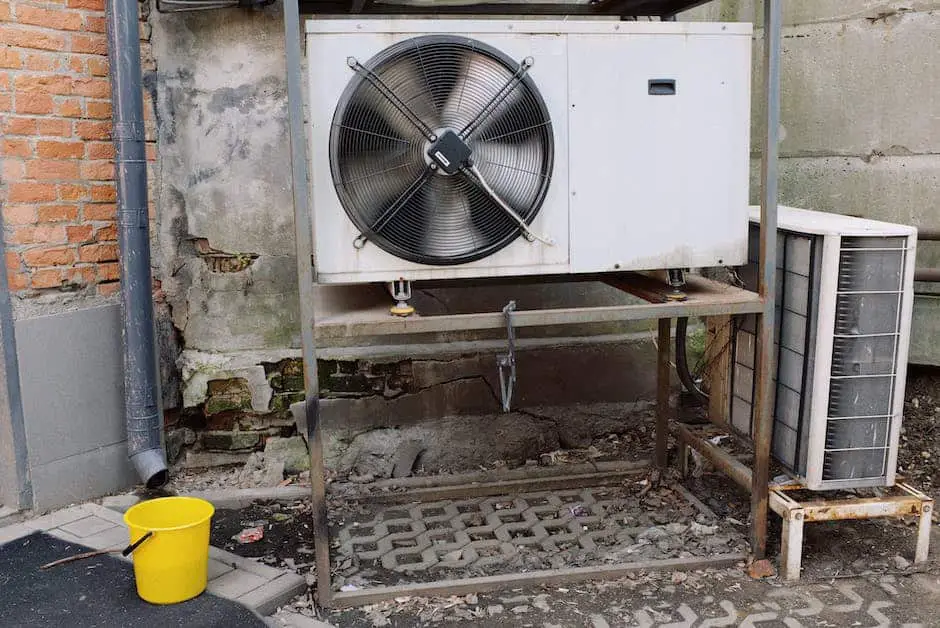
Upgrading Your Rental Property’s HVAC System for Energy Efficiency
As a property owner or real estate investor, you’re always looking for ways to increase the value of your rental property and attract quality tenants. One of the most effective ways to achieve this is by upgrading your rental property’s HVAC system for energy efficiency. In this article, we’ll explore the benefits of energy-efficient HVAC systems, discuss various upgrades you can make, and provide valuable insights to help you make the best decision for your property.
Why Upgrade Your Rental Property’s HVAC System?
There are several reasons why upgrading your rental property’s HVAC system is a smart investment:
- Increased energy efficiency: Energy-efficient HVAC systems consume less energy, which translates to lower utility bills for your tenants and a more attractive rental property.
- Improved indoor air quality: Modern HVAC systems are designed to provide better air filtration and ventilation, resulting in a healthier living environment for your tenants.
- Higher property value: Energy-efficient upgrades can increase the value of your property, making it more appealing to potential buyers or renters.
- Reduced maintenance costs: Newer HVAC systems typically require less maintenance and have longer lifespans, saving you money in the long run.
- Environmental benefits: By reducing energy consumption, you’re also reducing your property’s carbon footprint and contributing to a more sustainable future.
Understanding Energy Efficiency Ratings
Before diving into specific HVAC upgrades, it’s essential to understand the various energy efficiency ratings used to measure the performance of HVAC systems:
- Seasonal Energy Efficiency Ratio (SEER): This rating measures the cooling efficiency of air conditioners and heat pumps. A higher SEER rating indicates better energy efficiency.
- Energy Efficiency Ratio (EER): Similar to SEER, EER measures the cooling efficiency of air conditioners and heat pumps but is calculated using a constant outdoor temperature. A higher EER rating indicates better energy efficiency.
- Heating Seasonal Performance Factor (HSPF): This rating measures the heating efficiency of heat pumps. A higher HSPF rating indicates better energy efficiency.
- Annual Fuel Utilization Efficiency (AFUE): This rating measures the efficiency of furnaces and boilers, indicating the percentage of fuel converted to heat. A higher AFUE rating indicates better energy efficiency.
When comparing HVAC systems, look for models with higher efficiency ratings to maximize energy savings and reduce your property’s environmental impact.
Top HVAC Upgrades for Energy Efficiency
Now that you understand the importance of energy efficiency and how it’s measured, let’s explore some of the top HVAC upgrades you can make to improve your rental property’s energy efficiency:
1. Replace Old HVAC Systems with Energy-Efficient Models
One of the most significant upgrades you can make is replacing your property’s old HVAC system with a new, energy-efficient model. Modern HVAC systems are designed to consume less energy and provide better performance, resulting in lower utility bills and improved indoor air quality. Look for models with high SEER, EER, HSPF, and AFUE ratings to ensure you’re getting the most energy-efficient system available.
2. Install a Programmable Thermostat
Programmable thermostats allow tenants to set specific temperature schedules, automatically adjusting the temperature when they’re away from home or asleep. This can result in significant energy savings, as the HVAC system doesn’t need to work as hard to maintain a constant temperature. Some programmable thermostats even offer smart features, such as remote control via a smartphone app, further enhancing energy efficiency and convenience for your tenants.
3. Seal and Insulate Ductwork
Leaky or poorly insulated ductwork can result in significant energy loss, as heated or cooled air escapes before reaching its intended destination. By sealing and insulating your property’s ductwork, you can improve the efficiency of your HVAC system and reduce energy consumption. This upgrade not only saves your tenants money on their utility bills but also improves overall comfort by ensuring consistent temperatures throughout the property.
4. Upgrade to Energy-Efficient Windows
Old, single-pane windows can be a significant source of energy loss, as they allow heat to escape during the winter and enter during the summer. Upgrading to energy-efficient, double-pane windows can help reduce this energy loss, resulting in a more comfortable living environment and lower utility bills for your tenants. Additionally, energy-efficient windows can help block outside noise, providing a quieter living space for your tenants.
5. Regular HVAC Maintenance
Regular maintenance is crucial for keeping your HVAC system running efficiently. This includes tasks such as changing air filters, cleaning coils, and checking for leaks. By ensuring your HVAC system is well-maintained, you can prolong its lifespan, reduce the likelihood of costly repairs, and maintain optimal energy efficiency.
Case Studies and Statistics
Upgrading your rental property’s HVAC system for energy efficiency is not only a smart investment but also a proven strategy for attracting quality tenants and increasing property value. Here are some case studies and statistics to support this claim:
- A study by the National Association of Home Builders (NAHB) found that energy-efficient features, such as high-efficiency HVAC systems, were among the top factors influencing homebuyers’ purchasing decisions.
- According to the U.S. Department of Energy, upgrading to a high-efficiency HVAC system can reduce energy consumption by up to 50%, resulting in significant savings on utility bills.
- A report by the American Council for an Energy-Efficient Economy (ACEEE) found that energy-efficient upgrades, including HVAC system improvements, can increase property values by up to 10%.
Conclusion
Upgrading your rental property’s HVAC system for energy efficiency is a smart investment that can result in numerous benefits, including lower utility bills, improved indoor air quality, increased property value, and reduced maintenance costs. By understanding energy efficiency ratings and implementing the top HVAC upgrades discussed in this article, you can make your property more attractive to potential tenants and buyers while contributing to a more sustainable future. Don’t wait – start exploring your options for upgrading your rental property’s HVAC system today!